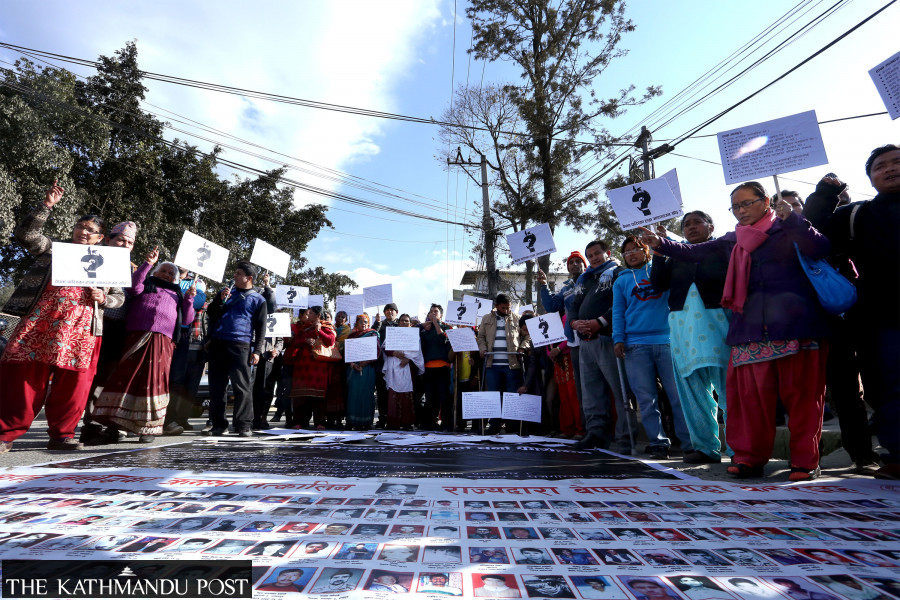National
Insurgency victims from security forces implore UN for justice
Say they feel discriminated against by both the Nepali state and the United Nations.
Binod Ghimire
At a time when the government is putting all its effort into expediting an amendment to the existing transitional justice law, victims of the insurgency from the side of the government security forces have sought the United Nations’ support for justice.
Writing a letter to two human rights rapporteurs at the UN, they claim that Nepal's transitional justice process excludes the security personnel victimised at the hands of then Maoist combatants. Through their letter, they have sought the support of Tabian Salvioli, special rapporteur on the promotion of truth, justice, reparation and guarantee of non-recurrence, and Morris Tidball-Binz, special rapporteur on extrajudicial and arbitrary execution to raise their concerns.
Neither the existing Enforced Disappearances Enquiry, Truth and Reconciliation Commission Act nor the amendment bill to the Act incorporates provisions to address incidents involving unarmed or non-uniformed security personnel who were killed or injured during the armed conflict, according to the letter.
KB Raut, chairperson of the Council of Former Security Personnel, Nepal, which wrote the letter on behalf of the victims, said they had to reach out to the special rapporteurs as they feel the UN too is indifferent towards their plight while also expecting that the international agency will from now on draw the attention of the Nepal government to their concerns.
On June 9, four UN special rapporteurs including Salvioli and Tidball-Binz had written to the Nepal government raising serious concerns over the amnesty provisions in the amendment bill. Raut said the letter from the rapporteurs didn't include their concerns.
“It is disheartening that your review and recommendation did not elaborate on the inclusion of provisions for security personnel who were killed while unarmed and not in uniform,” reads the letter from the victims.
Through the letter they have brought to the notice of the two special rapporteurs that security personnel who were on leave, caring for their loved ones in hospitals or performing the death rituals of their parents were also killed or tortured.
The security personnel deployed in developmental efforts were also tortured, forcibly disappeared or even killed. The families of the security personnel killed during the insurgency have lodged 5,000 complaints with the Truth and Reconciliation Commission. “However, we have repeatedly been told that our complaints don't fall under the commission’s jurisdiction,” said Raut.
In the letter they have mentioned that the Maoist victims of the insurgency received compensation, were also integrated in the Nepal Army and given interim relief. However, the victims from the security forces didn’t get such relief, which Raut says is discriminatory. “We hold the belief that the UN will stand for equality before law,” reads the letter. “We expect you will duly take note of our concerns.”
Raut said they were compelled to write to the UN as successive governments have been indifferent to their concerns. The government last year held consultations with various stakeholders before registering the bill in Parliament in July last year. However, the victims from the security forces were never consulted.
“Many security personnel faced atrocities even when they were unarmed and not in uniform,” advocate Shree Ram Adhikari, who contributed in writing the letter, told the Post. “The transitional justice process would be incomplete without ensuring justice to them.”
He said cross-party lawmakers who are giving final shape to the bill must incorporate the concerns of the victimised security personnel and their families from the time of insurgency.
A sub-committee under the Law and Human Rights Committee of the House of Representatives has started a thorough discussion on the bill. It has four days to give it a final shape.




 13.12°C Kathmandu
13.12°C Kathmandu














